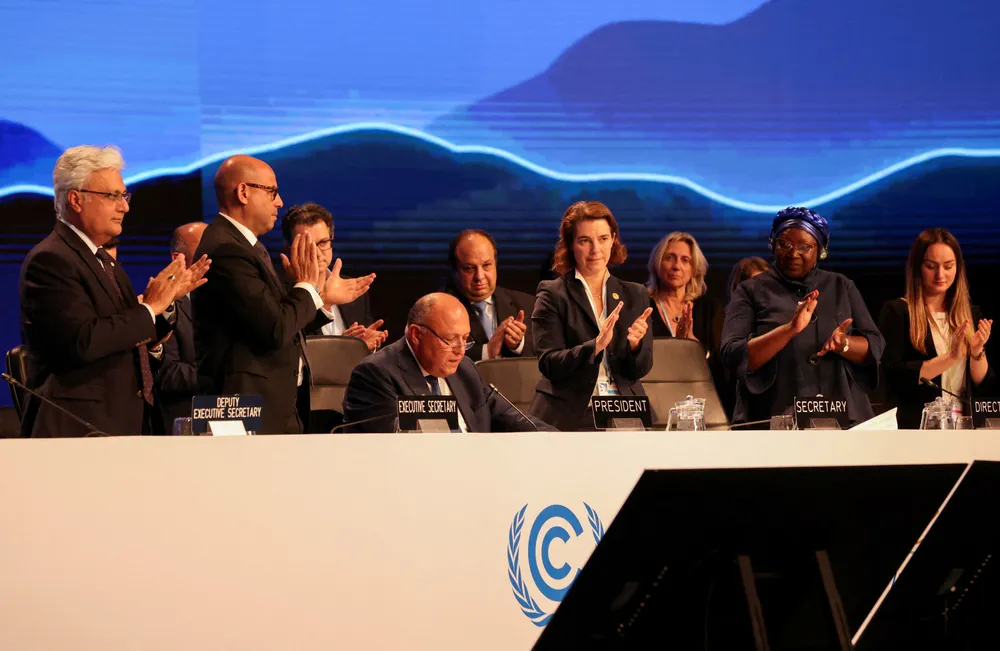COP27 reaches key deal on "loss and damage" funds for nations vulnerable to climate change
Final COP27 document seen as offering tacit support for natural gas and blue hydrogen amid warnings that energy transition is falling behind Paris objectives

Final COP27 document seen as offering tacit support for natural gas and blue hydrogen amid warnings that energy transition is falling behind Paris objectives
